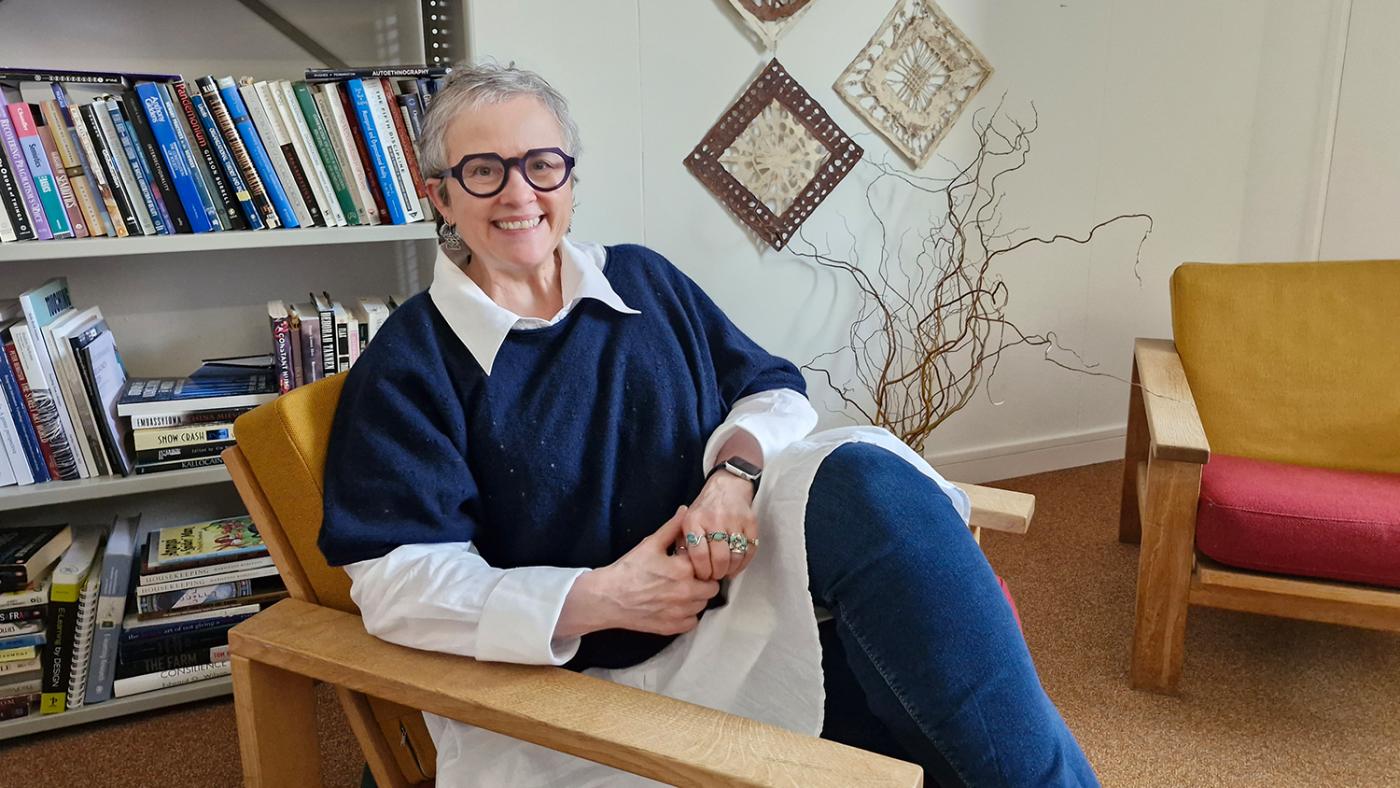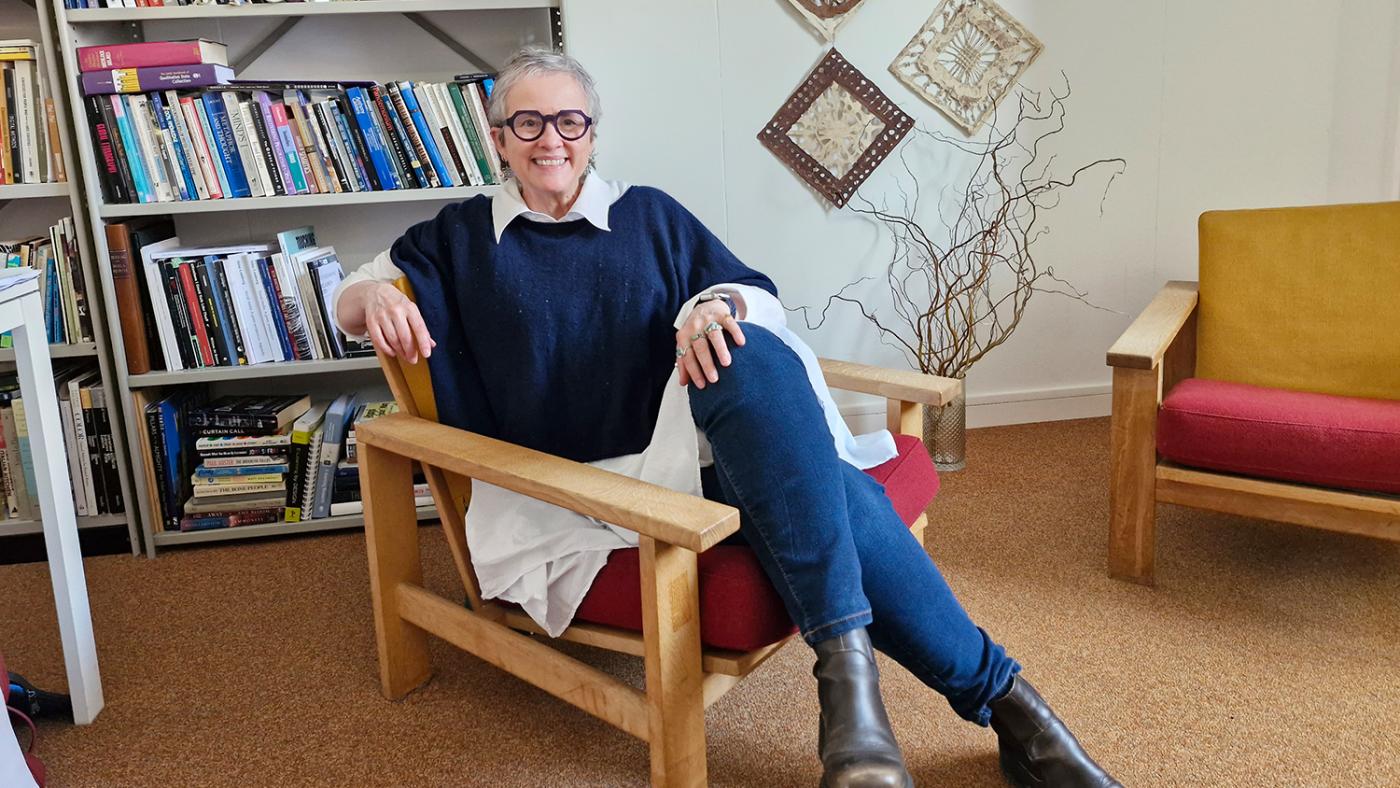American scientists in shock
Trump creates chaos using vague threats

“One of the most powerful strategies being deployed by the Trump administration is flooding our feeds with chaotic information. They implement an idea and then pull it back, or a court announces that the idea was illegal in the first place. People are laid off and then sometimes get their jobs back. It causes uncertainty, creating ripple effects of shock and forcing people to be overwhelmed. People no longer know what is real and what is not. Fact-checking does not suffice in this context because the government itself is spreading unreliable information. This shows us the complexity of disinformation systems today.’
These are the words of Annette Markham, Professor of Media Literacies and Public Engagement at UU. She studied at Idaho State University and Washington State University, and then obtained a PhD from Purdue University. In her thesis from 1997, Markham analyses how people give meaning to their lives and how the Internet influences this process.
Fact-checking does not suffice because the government itself is spreading unreliable information
Markham worked at several universities in the United States until 2014, when she moved to Denmark, Sweden, and Australia. She landed in Utrecht in 2024. In her research she trains young adults to cope with their own digital technology use. Through participatory engagement, she tries to activate critical awareness so that people can make their own choices.
Markham is flabbergasted by the recent events in the United States. Over the past two months, she has seen changes she had never thought possible. “We Americans consider the USA as a strong democracy. We take freedom of speech and academic freedom very seriously. People like Donald Trump, JD Vance and Elon Musk champion freedom of speech, but only when it suits them. It reminds me of George Orwell's book ‘1984’ and the concept of doublespeak. Speaking of books, thousands of them are being banned from libraries and schools, most of them about gender, people of color and the LGBTQAI+ community. In addition, online archives are being altered or downright deleted. A lot of revisionist history is happening.”

Peers don’t want to feel responsible for someone else’s deportation either
Markham says her peers in the US seem to be paralyzed by the situation they suddenly found themselves in. “Student visas being revoked without warning. People being deported without any rights or due process. That’s just crazy. It makes sense that scientists are trying to lay low for the moment. For example, Cornell university received a notice from the government threatening to cut their budget by a billion dollars. My peers don’t want to their actions to potentially cause the university to lose funding. They don’t want to feel responsible for someone else’s deportation either. It’s a tough situation to be in.”
According to Markham, many Americans feel as though their world is crumbling around them. Education is one of Trump’s main targets, particularly higher education, which is portrayed as too left-wing and ‘woke’. However, according to Markham, Trump’s threats against higher education are also an attempt to make the population dumber. “There is a global trend in which far-right politicians strive to de-educate the public because an uneducated public is easier to control.”
Many of her colleagues in Europe ask why American academics are not resisting more
Last week, Harvard was the first university to refuse to comply with Trump's demand to provide a list of international students. The university argues that the demand was illegal. As a result, the government sent Harvard a letter saying that 2.2 billion dollars in funding would be cut. Over the Easter weekend, the university announced it would challenge this discount in court. Until recently, Harvard was an exception with their open opposition. Today, 23 April, there was published a letter from 170 US higher education institutions opposing the Trump administration's political interference and demanding a free exchange of ideas.
The last months, many of her colleagues in Europe asked her why American academics are not resisting more. She believes many of them are scared or walking on eggshells, like her colleague at Cornell, but that doesn’t mean people are not resisting at all. “There are a lot of protests that the media is not reporting. Trump has doubled down on his attacks on mainstream media outlets, which are very undermined. The news is not travelling much, but many grassroots initiatives are happening. I know a community club that is calling their congresspeople every single day to share their concerns.”
When the Dutch government want to bring threatened American scientists here, you must have something to offer them
Markham believes people will start protesting more and more. Two weeks ago, Americans took to the streets to oppose Trump in the first demonstration to be televised. “But there are a couple of factors making things a little bit complicated. Americans hold a fundamental but perhaps naive belief that their country isn’t the place where something like this could happen. So, even though the writing was on the wall, many didn’t see these types of measures coming. We hope the situation turns around in the midterm elections in November 2026, causing Republicans to lose their majority in Congress and the Senate.”
The Dutch government's plan to bring threatened American scientists to the Netherlands raised Markham's eyebrows. “That’s nice. Very generous. But, in the Netherlands, a country that has just wiped out that good feeling for its own academic community, it feels like an added insult here in the Netherlands. Some scientists definitely want to leave, and if this situation continues, we could witness a brain drain in the US. But you must have something to offer them. The Dutch system is turning away from internationalization. Will those American scientists have to teach in Dutch? That would be a barrier. Take me as an example: I arrived last year and I’m very willing to learn Dutch, but I’ve been doing so much it’s hard to carve out the time to learn professional-level Dutch.”
Experience shows that one has to step outside their bubbles to understand the other person
Markham intends to keep in touch with her peers in the US and elsewhere. In Utrecht, she has set up a Futures + Literacies + Methods Lab to look for ways to make people more resilient to events like the ones we are seeing in the US. “This lab will bring people together to break the deadlock we are in. These days, people are divided into different camps online, each believing their side of the story to be the only truth. What we need is a tool to link the information they are presented with to their own lives. Now people are too much guided by what they read in the media, but does that match their own experiences? Ideally, people should interact with each other. Experience shows that one has to step outside their bubbles to understand the other person. And then they realize they are not as different as they might have thought.”